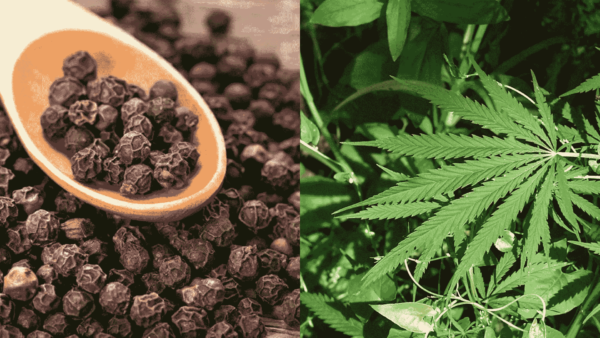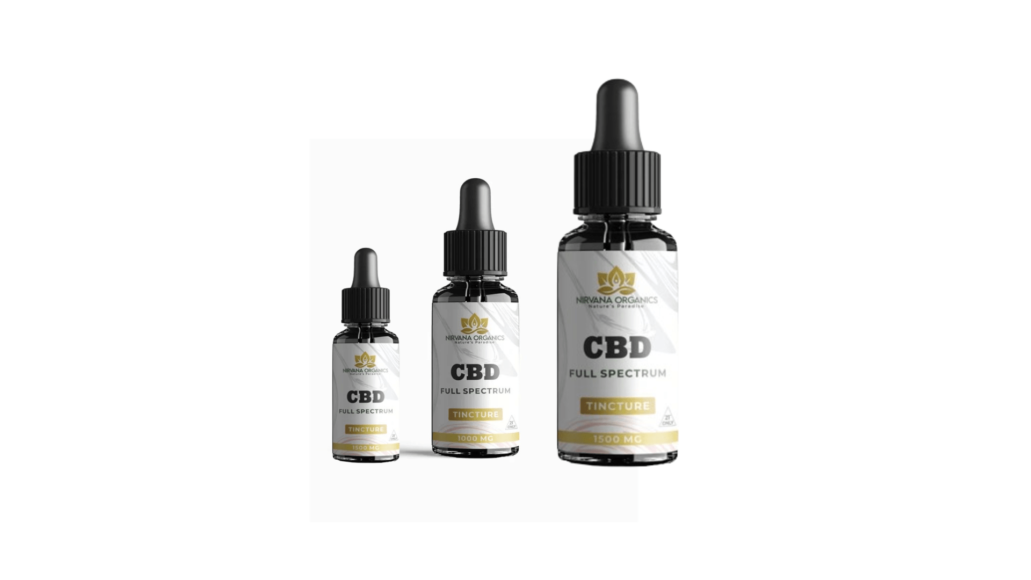Exploring the Potential of Black Pepper with Cannabis
At first glance, black pepper and cannabis might not seem connected. One is known for spicing up your meals, while the other is famous for its effects on the body. But surprise! They’re more alike than you’d guess. Both contain something called cannabinoids, which are molecules that work with the body’s endocannabinoid system.
Before you think about smoking black pepper, know it won’t make you feel high. Instead, a compound in black pepper can actually help reduce the high from cannabis. This can be useful if you take too much or if you want to stay focused while using cannabis during your daily activities.
We’ll take a closer look at this connection below.
What is black pepper?
Many folks know black pepper as a spice that, along with salt, gives a tasty kick to lots of different savory dishes. The little round bits we put in pepper mills come from a plant called Piper nigrum.
Piper nigrum grows in southern India and is part of the Piperaceae family. It’s a vine with big leaves and small, slender flowers that eventually turn into pepper-like fruits. After they’re dried, these tiny spice pieces end up in almost every kitchen cabinet, ready to sprinkle over our food.
For ages, people have used black pepper to add flavor to meals and as a natural remedy. In ancient Indian medicine, like Ayurveda, black pepper is known as the “king of spices”. It’s thought to have a sharp taste that helps kickstart digestion.
Why Black Pepper Is Beneficial
Black pepper isn’t just about adding flavor; it also brings some good stuff to the table. Here are a few reasons why you might want to sprinkle some ground pepper into your meals:

Antioxidant
Black pepper is loaded with antioxidants. These special molecules travel through your bloodstream and help neutralize harmful free radicals. Free radicals can mess with your DNA by causing oxidation, but antioxidants swoop in to save the day by preventing this damage.
Calming
Ground black pepper has a soothing effect on the gut and can encourage the growth of good bacteria. These helpful little critters play a big role in helping us digest our food effectively.
Cholesterol
We’re all aware of the dangers of having too much cholesterol, especially the “bad” kind called LDL. Black pepper can actually help lower cholesterol levels, including LDL, which is great for keeping you healthy as per current research and studies.
Stimulates digestion
Just like the ancient Ayurvedic experts said long ago, black pepper is now thought to boost digestion. It also improves the absorption of other good stuff found in turmeric and green tea. So, adding a dash of black pepper to your turmeric or green tea could make those healthy benefits even better!
Memory
Adding ground pepper to your meals might bring a smile to your neurons. In studies using mice with induced neurotoxicity, black pepper showed promise in potentially enhancing memory. This makes it an intriguing topic for further exploration in future research.
The science behind terpenes
Terpenes are natural compounds found in plants that give off distinct smells. You’ve probably noticed them when you peel an orange or stroll through a pine forest. There are thousands of terpenes in nature, and around 200 are found in the tiny hair-like structures called trichomes on cannabis plants.
In plants, terpenes aren’t essential for growth or reproduction. But they do important tasks like repelling pests, attracting helpful creatures, and shielding against tough conditions like extreme heat.
What is beta-caryophyllene?
Cannabinoids have a structure similar to natural cannabinoids our bodies produce, like anandamide. This similarity lets them activate, block, or lower the activity of cannabinoid receptors. Many cannabinoids work this way. For instance, THC affects us by binding to the CB1 receptor and making it more active, while CBD works by blocking that same receptor.
Beta-caryophyllene got its status as a cannabinoid because it can bind to the CB2 receptor and ramp up its activity. This unique ability gives it special effects. Interestingly, beta-caryophyllene is the most common terpene found in cannabis extracts. It’s also found in other foods like hops, cinnamon, cloves, and rosemary, which is why scientists sometimes call it a “food cannabinoid.”
Apart from its own effects on the endocannabinoid system, black pepper seems to change how other cannabinoids work in the body. It might especially tweak the effects of THC. When beta-caryophyllene binds to the CB2 receptor, it has a calming effect. So, in a way, beta-caryophyllene is similar to CBD in how it can tone down the mind-altering effects of THC.
For years, folks in the cannabis community have turned to chewing black pepper when they’re in the midst of a panic attack caused by cannabis. Now, science is starting to back up this practice. By tweaking the endocannabinoid system through a different receptor, beta-caryophyllene can actually help calm the mind.
Related posts
A Comprehensive Guide to the Essentials of CBD..
Understanding CBD Recovery Bar Dark Chocolate
What Are CBD Topicals and How Do They Work?
Understanding Vaporizer Burning and Its Benefits
Unraveling the Truth About CBD and Its Effects on..
5 Key Benefits of Choosing Vaporization
The products featured on this site have not been evaluated by the Food and Drug Administration. They are not intended to be used for the diagnosis, treatment, prevention, or cure of any medical condition. Nirvana Organics does not make any claims about the benefits of our products. We recommend consulting your physician before using alternative therapies, especially if you are pregnant, nursing, elderly, chronically ill, or taking prescription medications. You must be at least 21 years old to purchase our products. Consumers assume full responsibility for using these offerings appropriately and legally.
We aim to provide truthful information about our offerings. However, our content is not meant as medical advice or instruction. The customer bears responsibility for using all products appropriately and according to the law. Customers should not construe any information here as professional medical advice or prescriptions. We provide general details about our products but do not claim to treat, cure, or prevent diseases. Creating any treatment regimen is a decision between buyers and their qualified Medical practitioners. Per the PACT Act, we follow regulations regarding the shipment of lawful goods.
THC Disclaimer
Our products contain no more than 0.3% Δ9-THC on a dry weight basis, which meets legal requirements. However, Δ9-THC can cause impairment and other side effects. You must avoid these offerings if pregnant or nursing. We also recommend consultation with a medical professional before consuming Δ9-THC. Keep these products away from children or animals. Operating vehicles or other machinery under the influence of Δ9-THC may be illegal and dangerous.

We at Nirvana Organics believe in quality and customer experience.
©2024. shopnirvanaorganics.com. All Rights Reserved.
- Login
- Sign Up








